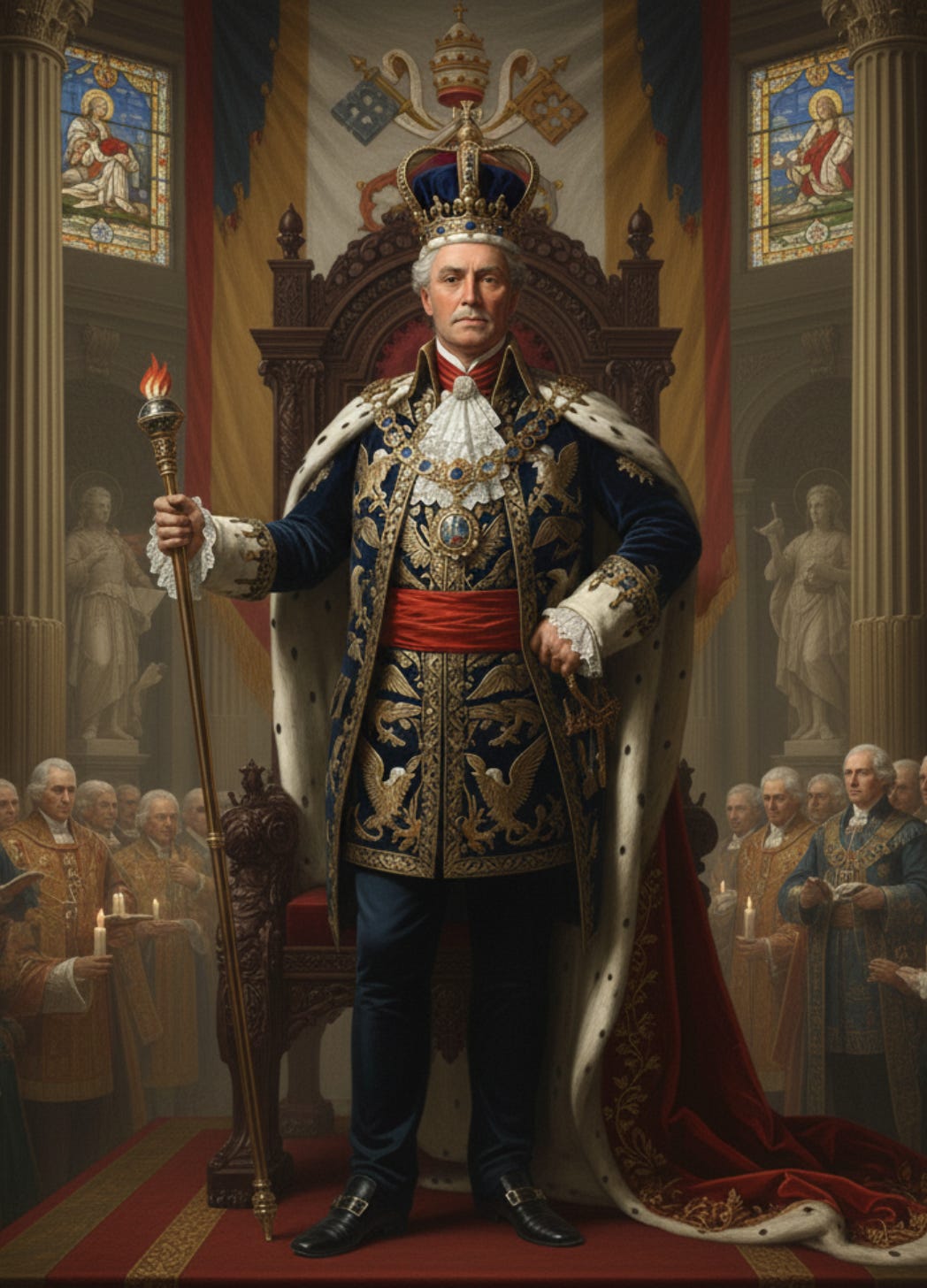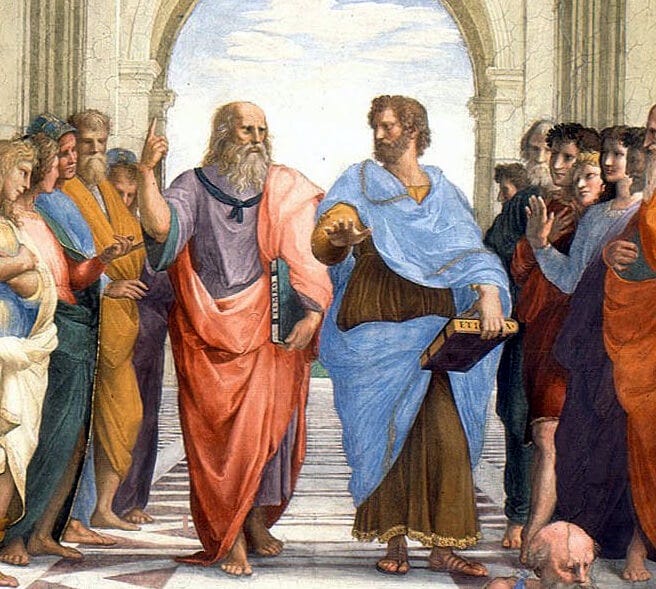America doesn't need a king
Where the online monarchists go wrong
If you spend enough time on the internet, you’ll run into monarchists. A group of people, typically traditional Catholics, who believe monarchy is the only legitimate form of government and that America needs to become a monarchy.
They will often point to the success of medieval Christian kingdoms as proof to virtuous rulers like King Louis IX or Ferdinand and Isabella of Spain. They will also point to the abuses of liberalism to show that democracy is illegitimate.
But America does not need a king to be a good nation. It doesn’t follow that because there were virtuous kings, that an absolute monarch is the only way to build a virtuous society.
If we want America to be a Christian nation, we need politicians who imitate the great Christian kings, not in their kingship, but in how they treated God’s law.
The Flaw of the Online Monarchist
The internet monarchists have a basic but incomplete understanding of Aristotle’s Politics.
In his work on what he called the “highest science,” Aristotle talked about three levels of government:
Monarchy, where rule is concentrated in a single monarch
Aristocracy, where rule is concentrated in a small group of noble elites
Democracy, where rule is concentrated in the people.
(Note: Aristotle used the term “timocracy” to describe what we call democracy today. For him, “democracy” was a negative term akin to what we would call “mob rule.” For clarity, I will use the modern terms.)
Most people think of these as three “types” of government, but they are really three levels. Monarchies typically have an aristocratic element and sometimes even a democratic one through a parliament. This is a “blended” system, which, according to St. Thomas Aquinas, is preferable to a “pure” system.
For this is the best form of polity, being partly kingdom, since there is one at the head of all; partly aristocracy, in so far as a number of persons are set in authority; partly democracy, i.e. government by the people, in so far as the rulers can be chosen from the people, and the people have the right to choose their rulers. - Summa Theologiae I-II Q.105 A.1
In medieval Christendom, we had kings, but we also had an aristocracy of nobility. In some places, we also had democracy in the form of parliaments. It’s a misread of Aristotle to think we just get to choose one of these three pure forms.
In the book Integralism by Thomas Crean and Alan Fimster, they describe different ways to structure a government with blended constitutions, like monarchy-aristocracy or aristocracy-democracy. But the reality of government is that most societies are blended naturally, not on purpose. The blending comes as a natural growth out of the culture of the polity.
Virtually no nation constructed itself from a blank slate. The most notable exception is the United States of America.
The Cycle of Governments and the American Experiment
Many philosophers saw these three forms of government as cyclical.
Keep reading with a 7-day free trial
Subscribe to Catholic Pat to keep reading this post and get 7 days of free access to the full post archives.




